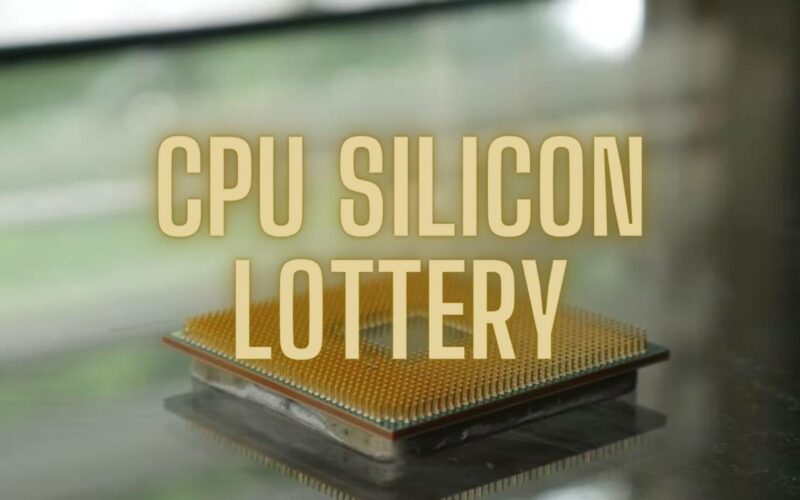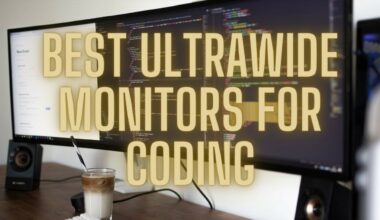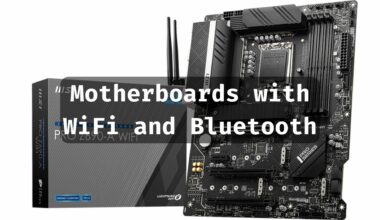We know that Intel i5 CPUs are different from i7 models, but the same CPUs can be different in terms of performance. No two CPUs are the same because of the silicon lottery.
Table of Contents
- What Is “Silicon Lottery”?
- What Are Binned CPUs?
- What Is CPU Overclocking?
- Silicon Lottery and Golden Samples
- How Much Can The Performance Vary Between An Average Chip VS A Good Chip
- Does The “Silicon Lottery” Matter If I Don’t Plan On Overclocking The CPU?
- AMD VS Intel Silicon Lottery
- Silicon Lottery And FOMO (Fear Of Missing Out)
- Can I Return The Processor For Silicon Lottery Reasons?
- Conclusion
What Is “Silicon Lottery”?
You would expect all the Intel 13600K CPUs to perform the same, but that is not the case. While some can overclock to 6GHz, others might have difficulty reaching 5.5GHz. This is due to the Silicon Lottery.
This happens due to tiny imperfections in each die. Not all connections between the transistors, cache, and memory are up to the mark, which leads to varying degrees of latency and power loss in the form of heat. If the efficiency of a core isn’t high enough, it will be disabled in the die. If the core meets the required standards, it will remain enabled, and the “silicon lottery” will take effect.
A quad-core processor can have two of the cores disabled and be sold as a dual-core processor. This allows for a more efficient manufacturing process, so CPUs do not have to be wasted or melted down.
Each CPU’s performance will also depend on the quality of the silicon wafer from which it was cut out. Minor material differences in the CPU manufacturing process can lead to performance differences.
![]()
Image Credits: Quora
This means that two Intel 13600K CPUs will be different in terms of overclocking potential, and that is why it can be challenging to ensure how high a CPU can be overclocked at a specific voltage.
So the next time you buy an unlocked CPU or even GPU, you play the silicon lottery.
What Are Binned CPUs?
Binning refers to the CPU’s degree of perfection or how well it overclocks. Intel and AMD bin their CPUs by unlocking certain SKUs and disabling specific cores. The unlocked Intel 12600K has a higher bin than the locked 12600, allowing the 12600K to reach a higher clock speed. You also pay more for the unlocked model since it performs better and can reach a higher clock speed.
We mentioned above how a quad-core CPU with two cores disabled can be sold as a dual-core CPU to avoid wasting the CPU or melting it down. This process of sorting CPUs is called binning. Binned CPUs ensure a certain level of performance.
The Intel Core i9-9900KS special edition is a great example of a binned CPU. While the CPU specifications are identical to any regular 9900K, the 9900KS boosts to 5GHz out of the box and has more overclocking headroom than the regular 9900K chips. The 9900KS has been reported to hit speeds of 5.2GHz, which is 100MHz-200MHz higher than the standard 9900K.
What Is CPU Overclocking?
Overclocking a CPU means making it run faster than its original state or what the manufacturer recommends. Overclocking your CPU can lead to instability which you can compensate for by increasing the voltage provided to the CPU, which can result in higher temperature and power consumption. This is why proper CPU cooling is recommended for overclocking.
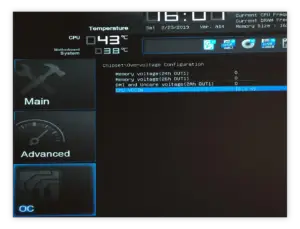
Image Credit: Avast.com
Many people are willing to pay these trade-offs for more performance. You should note that you can void your warranty if you overclock your CPU. So, overclock at your own risk. Nowadays, CPUs are so reliable and robust that people do not worry about damaging them by overclocking them. So, voiding the warranty is less of an issue.
Overclocking gains might be insignificant, as much of the performance benefits depend on the transistor size and the CPU’s architecture. So, increasing the clock speed will give you little performance improvements.
Higher clock speeds are better, but that is true when comparing two CPUs with the same architecture and number of cores. Realistically, you will not be able to double the performance of your CPU by overclocking it unless you have an efficient cooling solution. Such equipment is used for short-term overclocking for competitions rather than daily use.
You can expect an overclock of a few hundred MHz, up to 1GHz, at home. Anything higher is going to be a challenge. So your expectations should be realistic, and you should know how different types of programs, such as games utilize the CPU and GPU. Most games are GPU-bound and will not take full advantage of your CPU. There are simulation games that do take advantage of faster CPUs.
Silicon Lottery and Golden Samples
The Golden Sample is a benchmarked CPU that manufacturers use to measure metrics such as performance, voltage, tolerance, etc. The Golden Sample can be overclocked higher than the average CPU at a lower voltage.
For example, the Intel 13600K has a default boost clock speed of 5311MHz. A good sample can be overclocked to 5500MHz, and a golden sample can hit 5800MHz or even 6000MHz with the right cooling.
How Much Can The Performance Vary Between An Average Chip VS A Good Chip
You can expect to see an overclock of a few hundred MHz. The Intel 13600K has a default boost clock speed of 5311MHz. A silicon lottery winner can get the CPU to 6200MHz with the right cooling.
What this means in terms of actual performance depends on the programs you use. You will not see a significant difference in GPU-bound games, but in CPU-bound games, you might see a boost of 5-10 FPS, if not more.
Does The “Silicon Lottery” Matter If I Don’t Plan On Overclocking The CPU?
CPUs are tested and verified to meet the minimum specifications before they are sold. So you do not need to worry about the silicon lottery if you are getting a locked CPU or if you are not interested in overclocking. The silicon lottery matters mostly to enthusiasts looking to set overclocking world records.
AMD VS Intel Silicon Lottery
The concept of the silicon lottery remains the same whether you pick a CPU from AMD or Intel. Both manufacturers can have tiny flaws in the manufacturing process, leading to performance differences in the end product. However, AMD and Intel are excellent at ensuring the promised performance with their CPUs thanks to aggressive binning and auto-overclocking technologies.
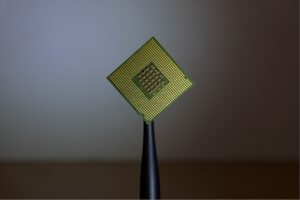
Image Credit: Unsplash
So, you cannot pick one or the other based on the chances of winning the silicon lottery since it boils down to luck.
Silicon Lottery And FOMO (Fear Of Missing Out)
To check whether you won the silicon lottery, you will need to test your CPU and compare the overclocked boost speeds with the results of the same chip that others have posted. If your CPU performs better than the average, then you have won the silicon lottery.
For example, the Intel 11900K can boost clock speed between 4.9GHz and 5GHz. If your 11900K can go above 5GHz, then you have won the silicon lottery. Furthermore, if your chip can run even faster, then it is a golden sample. But remember, a Silicon Lottery is what the name suggests, a lottery based on dumb luck. Not a financial lottery but a digital one that promises better CPU performance.
Can I Return The Processor For Silicon Lottery Reasons?
You cannot return a processor because you did not win the silicon lottery. CPUs are tested and verified to meet the minimum requirements before they are shipped. So, the product that you buy has already passed the minimum requirement.
Returning a CPU because it does not overclock as high as the results posted by other users online results in retailers suffering losses and can lead them to impose restocking fees and strict RMA processes.
Conclusion
Small imperfections in the manufacturing process can cause performance differences in CPUs. This is why no two CPUs are the same and will have varied overclocking headroom. Binned CPUs ensure a certain level of performance, but you do not need to worry about the silicon lottery if you are not interested in overclocking your CPU.
